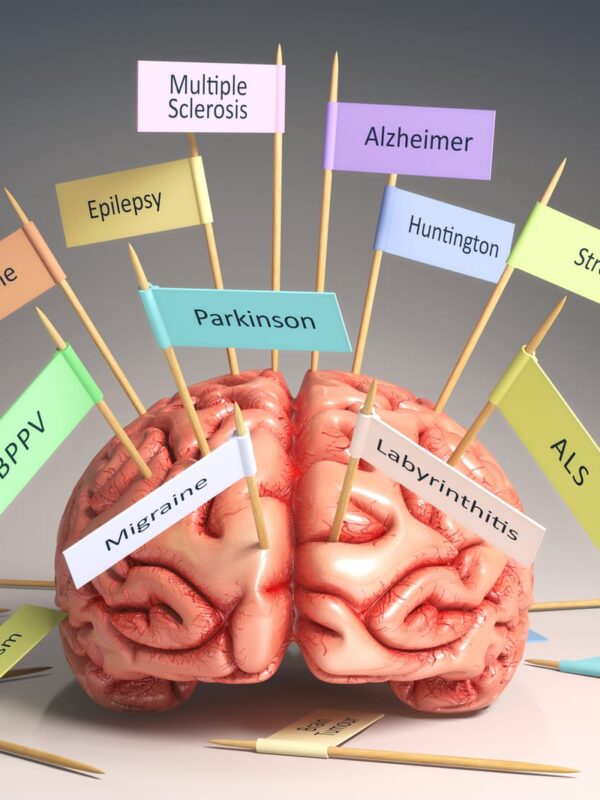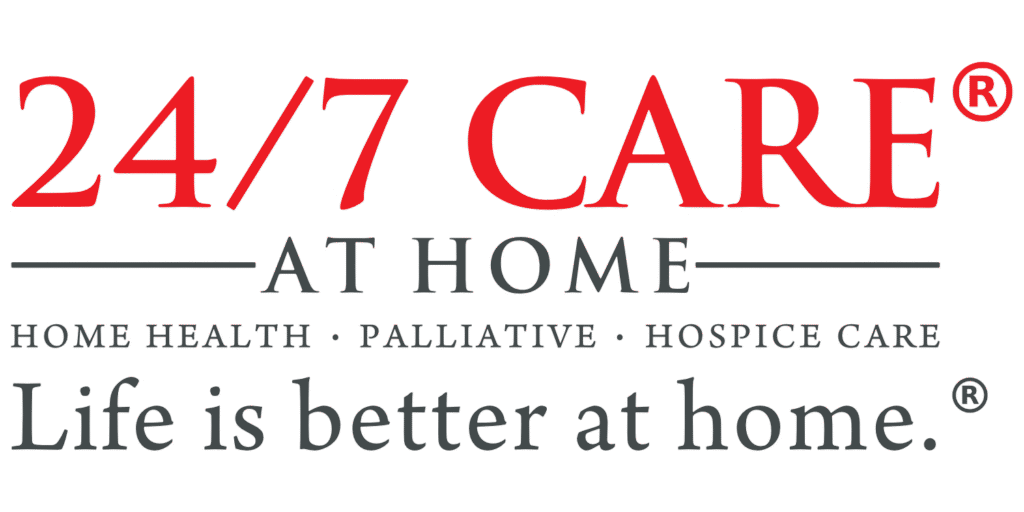Select a Disease to Learn More

Personalized Support for Individuals with ALS
When ALS (Amyotrophic Lateral Sclerosis) affects your life or that of a loved one, facing this progressive condition can feel overwhelming. You do not need to navigate this journey alone. At 24/7 Care at Home, we understand how ALS impacts physical abilities, emotional well-being, and family life. Our specialized healthcare team provides compassionate care that focuses on comfort, dignity, and quality of life in your own home.
Understanding ALS
ALS affects approximately 33,000 Americans, with about 5,000 new diagnoses each year. Also known as Lou Gehrig’s disease, ALS is a progressive motor neuron disease that affects nerve cells controlling muscle movement. While most commonly diagnosed between ages 55-75, ALS can affect people at any age.
The most common types include:
- Sporadic ALS: No family history, accounts for 90-95% of cases
- Familial ALS: Inherited form, accounts for 5-10% of cases
- Limb-Onset ALS: Begins with weakness in arms or legs
- Bulbar-Onset ALS: Begins with speech and swallowing difficulties
Common Clinical Manifestations:
- Muscle weakness, twitching, and cramping
- Difficulty speaking, swallowing, or breathing
- Gradual paralysis progressing through the body
- Trouble with fine motor skills like writing or buttoning clothes
- Fatigue and muscle stiffness
- Note: ALS typically does not affect thinking, memory, or senses
When Your Loved One Requires Additional Support:
- Increasing difficulty with basic personal care tasks like bathing or dressing
- Speech becoming unclear or swallowing problems developing
- Mobility challenges requiring assistive devices or safety modifications
- Breathing difficulties or respiratory weakness
- Family caregivers feeling overwhelmed with complex care needs
- Need for specialized equipment like feeding tubes or ventilators
- Frequent falls or safety concerns due to muscle weakness
- Managing complex medication regimens and symptom changes
Key Clinical Facts: ALS prevalence in the U.S. is about 9.1 cases per 100,000 people. While average life expectancy is 2-5 years from diagnosis, multidisciplinary home health care extends survival by an average of 6 months and significantly improves quality of life. Early hospice care reduces hospitalizations, improves symptom management, and enables patients to receive end-of-life care at home with greater comfort and dignity.
🩺 Home Health Care: Skilled Medical Support at Home
In the early to middle stages of ALS, home health care can provide important medical support while helping your loved one stay safe and independent.
Clinical Services Provided:
- Physical Therapy: Exercises to maintain strength and prevent contractures
- Occupational Therapy: Adaptive techniques for daily activities and assistive devices
- Speech Therapy: Communication support and swallowing safety assessment
- Respiratory Care: Breathing exercises and airway clearance techniques
- Nutritional Support: Managing swallowing difficulties and weight maintenance
- Equipment Training: Proper use of mobility aids, communication devices, and feeding equipment
- Medication Management: ALS medications and symptom management support
Specialized Services Include:
- Assistive Technology Training: Communication devices and computer adaptations
- Home Safety Assessment: Environmental modifications for progressive weakness
- Family Education: Disease progression, care techniques, and emergency preparedness
- Care Coordination: Working with ALS specialists, pulmonologists, and nutritionists
🏡 Home health care can help bridge the gap between hospital visits and living daily life at home—allowing more moments of connection, comfort, and dignity.
🌅 Hospice Care: Comfort-Focused Support When It’s Needed Most
As ALS progresses and decisions are made to prioritize comfort over curative treatments, hospice care can bring tremendous peace of mind.
Hospice Care May Be Beneficial When:
- Severe breathing issues needing major support
- Major weight loss or poor nutrition despite help
- Fast disease progression with big drop in function
- Serious issues: repeated aspiration, respiratory failure, inability to eat, extreme weakness
- Frequent ALS-related hospital visits or choice for comfort care
- Life expectancy under 6 months (per physician)
Hospice Services Include:
- Symptom relief: Breathing, pain, muscle spasm control
- Medical equipment: Beds, oxygen, suction, feeding pumps
Covered medications: Comfort and symptom treatments - Respite care: Breaks for family caregivers
- Emotional/spiritual support: Counseling for patients and families
🕊️ Hospice care isn’t about giving up. It’s about ensuring that every day is lived as fully and comfortably as possible, with expert support for both the patient and the family.
💡 We’re Here for You—Because Life Is Better at Home
Deciding between home health and hospice care can be overwhelming. You don’t have to make these decisions alone. At 24/7 Care at Home, we take the time to listen, guide, and support you in choosing the care that best fits your needs and values.
Whether you’re seeking comfort, clinical support, or just someone to talk things through, we’re here for you—every step of the way.
📞 For ALS Home Health Services: Call (800) 651-5371 for specialized therapy, respiratory support, and progressive care management.
📞 For ALS Hospice Care: Call (800) 651-5371 for comfort-focused care in advanced stages.

